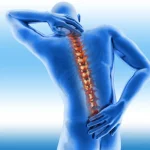
Sinus pain can happen to anyone at any age. While the reasons may be different, the symptoms are usually the same.
If you’re experiencing facial pressure, blocked nasal passages, or a reduced sense of smell, you may have issues pertaining to your sinuses.
What Is Sinusitis?
Sinusitis occurs when there is inflammation in the sinuses. Sinus infections can become present when there is an allergic reaction, common cold, small growth, or deviated septum. When sinuses are not able to fill up with air, blockages may make breathing difficult. If untreated, fluid and germs can cause infection.
There are several different types of sinusitis depending on how long symptoms last. Acute sinusitis usually begins with a runny or stuffy nose accompanied by facial pain or pressure.
This generally lasts anywhere from 2 – 4 weeks. Subacute sinus inflammation can last for twelve weeks while chronic inflammation symptoms last twelve weeks or longer.
Sinus Pain Treatment
Approximately 35 million Americans have sinusitis at least once during the year. While a common cold is known to affect the sinuses, structural differences, nasal polyps or even medication can trigger uncomfortable symptoms. Depending on the diagnosis, certain treatments are available.
5 Types of Treatment
1.) Nasal decongestant sprays. Nasal decongestant sprays are a popular way to treat nasal inflammation. Many topical nasal decongestants are available at regular drug stores.
Depending on the severity of sinusitis, many nasal strips and sprays can be purchased without a prescription. By using a nasal decongestant spray, the nasal passages can shrink which allows for sinus drainage to properly flow.
It is important not to use this type of treatment for a prolonged period of time because it can increase the likelihood of dependence. If nasal pain persists over a sustained period of time, calling a doctor is advised.
2.) Topical corticosteroids. Nasal corticosteroids are a prescribed treatment that can prevent as well as reverse nasal inflammation.
Because corticosteroid medication has powerful anti-inflammatory properties, the immune system can be suppressed. By applying the topical to the precise area, it can treat quickly and effectively to relieve sinus pain.
No tall topical corticosteroids are the same. There are different strengths of corticosteroids that a medical professional can prescribe for the best dosage.
3.) Nasal saline. Nasal irrigation is a natural way to relieve nasal pain from either a common cold or seasonal allergies. By using saline or saltwater, the nasal passages can be cleansed from mucus and other allergens.
There are different methods used for nasal irrigation. Many people use a saline solution container to drip solution into the nostrils, but a bulb syringe or neti pot can also be used.
For home-made saline solution, use 1 – 2 cups of warm water and half a teaspoon of non-iodized salt with a pinch of baking soda.
4.) Antibiotics. Depending on the type of nasal infection, antibiotics are an easy way to relieve sinus pain. Most antibiotics are taken for several days and then do not need to be continued.
Since antibiotics can potentially cause resistance, they are usually not prescribed unless symptoms have occurred for more than ten days. By attacking the bacteria that caused the sinus infection, sinusitis can clear up.
5.) Immunotherapy. Allergy shots can help prevent allergic reactions that can cause sinus pain. Inflamed nasal passages that last over 5 weeks may respond well to allergen immunotherapy.
These shots treat chronic or recurrent sinusitis that is a reaction to seasonal or environmental allergens. Certain types of mold, dust mites and pet dander can all cause sinus pain from an allergic reaction.
How To Receive A Proper Diagnosis
Nasal pain can have a variety of symptoms associated with it. Nasal congestion is a common issue that can happen with sinus pain.
This occurs when an infection is actively causing swelling of the sinuses and nasal passages. Nasal congestion can restrict the ease of breathing making it difficult to go about your everyday schedule.
In addition to a stuffy nose, headaches are also a common problem associated with nasal pain. Pressure from the sinuses can cause earaches, dental pain, and jaw pressure.
If you are experiencing a fever, nasal discharge, facial pain, or nasal congestion that lasts longer than ten days, make an appointment with a sinusitis expert in NJ for relief.
Underlying conditions may cause chronic infections that are best diagnosed by a trained medical professional in the field. Specialized treatment can include the use of antibiotics or steroids.
Conclusion
Nasal pain can impact our quality of breathing and life. With proper care, this can be remedied through home solutions, over the counter medication or specialized treatment.
Nasal pain can create discomfort in a number of ways including headaches, earaches, and jaw pain. If left untreated, sinusitis can negatively affect our daily life on an on-going basis.
To properly diagnose an underlying cause and seek treatment, scheduling an appointment with a trained medical professional is advised.
About The Author:
Stacey Smith is a freelance health writer. She is passionate to write about women’s health, dental health, diabetes, endocrinology, and nutrition and provides in-depth features on the latest in health news for medical clinics and health magazines.




